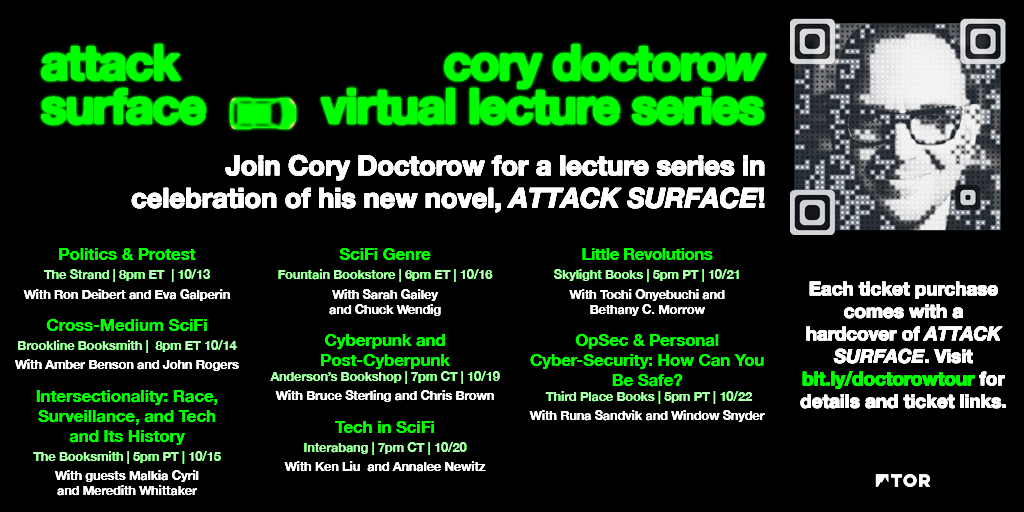
Each year, @freedomhouse publishes "Freedom on the Net," an annual snapshot of internet policy and outcomes in different countries, from #netneutrality to internet shutdowns to domestic surveillance.
This year's report is a grim read.
freedomhouse.org/report/freedom…
1/
This year's report is a grim read.
freedomhouse.org/report/freedom…
1/

The new report, spanning Jun 2019 to May 2020, tracks the steady (pre- and post-pandemic) march to a locked down internet robbed of its liberatory power and perverted in service to control, censorship and surveillance.
wired.com/story/internet…
2/
wired.com/story/internet…
2/
Even before the pandemic, things were bad, but the pandemic accelerates everything: inequality, monopoly, and internet crackdowns. In the name of epidemiology, the world's governments have criminalized some online speech and then arrested journalists and activists.
3/
3/
These speech restrictions also created a simple pretense for national website blocking and site takedowns, used to remove "unfavorable health statistics, corruption allegations, and other Covid-19-related content."
4/
4/
The Chinese model of tech as an autocrat's dashboard and control panel is surging around the world, and exposure notification apps are a powerful accelerant for the model, with mandatory location tracking, call-record harvesting, even mandatory quarantine "selfie checkins."
5/
5/
Ominously, much of the health surveillance is being undertaken by agencies tasked with tracking "domestic terrorism" - treating public health as something that is done TO people, not WITH them, giving spooks unlimited budgets and powers that will outlast the pandemic.
6/
6/
When all else fails, the world's autocrats turn to internet shutdowns, and these, too, are a comorbidity of the virus.
If you campaign for digital rights, you get used to being called a "tech exceptionalist."
7/
If you campaign for digital rights, you get used to being called a "tech exceptionalist."
7/
I am a tech exceptionalist.
Not because I think tech freedom is more important than racial justice, inequality, climate emergency, gender discrimination, or other pressing issues.
8/
Not because I think tech freedom is more important than racial justice, inequality, climate emergency, gender discrimination, or other pressing issues.
8/
I'm a tech exceptionalist because I believe that we can only address these issues with technological organization tools. As someone who's organized protests by wheatpasting posters to telephone poles, I'm confident there is no going back to predigital forms of resistance.
9/
9/
I'm a tech exceptionalist, not because I think tech is more important, but because I think it's foundational: it's the terrain on which other battles will be fought. A free, fair and open internet is the necessary but insufficient condition for human liberation.
eof/
eof/
• • •
Missing some Tweet in this thread? You can try to
force a refresh





















